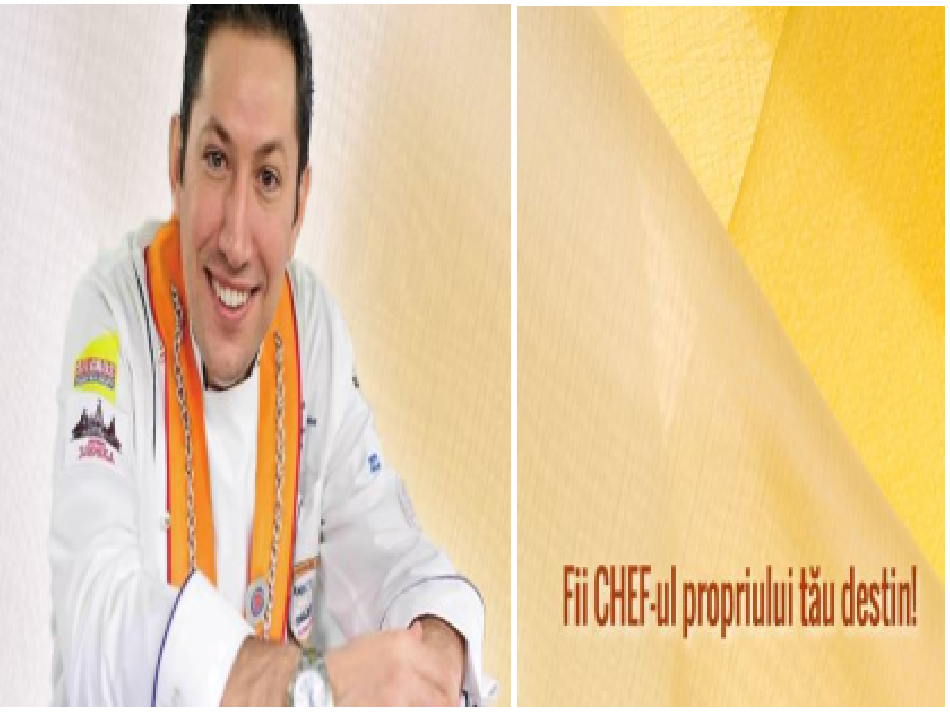Be the master of your own destiny
12 young orphans are taught to cook as part of a project to help them find employment when they leave their placement centre.

Christine Leșcu, 26.06.2013, 13:02
The old orphanages are today known in Romania as “placement centres”, a name clearly stating their transitory nature. In theory, children who arrive in these centres are subsequently either adopted, or placed in foster care. However, more often than not, these children are not that lucky and they end up living in the placement centre until they turn 18. Once of age, they have to start taking care of themselves in a world they know nothing about and with no support whatsoever. Also, benefiting from no financial means, they are supposed to find a place to live, with the state no longer taking care of them. They are adults and therefore must make it on their own, although nobody prepared them for this in the placement centre.
The Association for Human Rights Activation in Romania has developed a project to help orphans cope with confusion and rejection on the labour market. 12 young people from the Placement Centre no. 5 in Peris, Ilfov County, will be taught to cook free of charge. Afterwards, the initiators of the project will help them get in contact with potential employers. The lawyer Elena Corciu, the founder of The Association for Human Rights Activation Romania, has told us more about this project.
Elena Corciu: “We want to bring meaning into the lives of teenagers who are forced to live in an orphanage until they come of age. When they leave that place, they are hit by the brutal and unjust reality of their lives, characterised by drama, powerlessness and failure. Our project is aimed at providing motivational, vocational and professional counselling to 12 young people who are about to leave their placement centre in Peris, Ilfov County. These free counselling and legal assistance services will help them establish direct links with employers in their own community.”
The project was initiated by a famous chef, Cezar Munteanu, who is already known for the humanitarian projects he’s been involved in. Cezar has cooked for children in Africa and has participated in charity actions in the US. In Romania, he has helped people with drug addiction and Rroma children.
Cezar Munteanu: “At this stage, we provide training to 12, from psychological counselling to gastronomy. Also, they will be closely monitored once the programme is over. They will not be abandoned when this project ends. The aim of the project is to set up the first social restaurant in Romania for disadvantaged children.”
The project also enjoys the support of the local authorities. Bogdan Pantea, the Executive Director of the General Directorate for Social Assistance and Child Protection in Ilfov County hopes this type of programme will set a good example for future partnerships.
Bogdan Pantea: “Occupational counselling adds to this motivational and vocational counselling. These are children that have integration issues, because they find it difficult to detach themselves from the environment they live in until they are 18, namely the placement centre. The Ilfov Directorate hopes to be able to take part, together with The Association for Human Rights Activation Romania and other associations, in other projects that will truly help 18-year-old people achieve real integration into society.”
Nicu is 16 years old and lives in the Peris Placement Centre. He was taken there when his mother died. At the centre he learnt to play the flute, but he knows he needs more in order to be better prepared for life. We asked him what he thinks about cooking.
Nicu: “I like the idea. I think you shouldn’t follow a single path in life, because you don’t know if this path leads you anywhere. You must try a number of different things.”
The first thing Nicu would like to do after leaving the centre is to see his family, in particular his 21-year-old brother.
Nicu: “I want to contact my family, I miss them, especially my brother. He has visited me three or four times. Whenever he can make it, he comes to see me.”
Unlike Nicu, Nicoleta does not know her family. She is 18 and will soon leave the centre, where she has been living since she was very young.
Nicoleta: “I was eight when I got here. My mom left me. I’ve tried to find her, but couldn’t. Two years I suffered a lot, I missed her so badly. But then I said to myself I had to get over it and move on with my life. I took a table waiting class and now I’m doing this cooking course and I like it.”
Nicoleta now knows how to make beef salad, aubergine salad, meatballs and soup. She has learnt to cook thinking it would help her in her personal life as well.
Nicoleta: “Eventually I will get married and I should know how to cook, for my husband and my children. I will never, ever, leave my child in a home, because I know how much I suffered and I wouldn’t do that to my children. I would keep them with me and teach them things about life.”
The project run by the Association for Human Rights Activation in Romania started psychological counselling for the 12 young people in the programme, followed by the cooking course, which lasts until September.






























